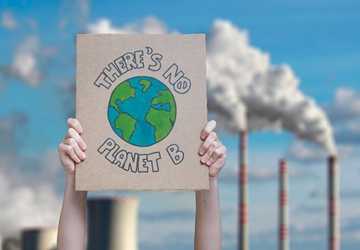The exact monetary impacts of climate change are difficult to predict because they vary from region to region. As a result, scientists have expressed concern that current economic models grossly underestimate the impact of climate change, and called for the development of new models that more accurately represent potential damage. Nonetheless, a 2018 study found that if countries implemented mitigation strategies to meet the Paris Agreement's 2°C target, the global economy could benefit nearly $18 trillion a year by 2100.
Since the 1970s, there has been a dramatic increase in natural disasters worldwide. Factors of a social and economic nature support the observed global pattern of disruption. There is a correlation between extent and local weather patterns, such as B. fluctuations in flooding and precipitation. Climate change and economic reasons have contributed to our current trends. However, social systems are becoming increasingly vulnerable to climate change.
Extreme temperature changes make it more difficult to determine the full economic cost of climate change.
For example, if global warming remained at 1.5°C, rather than the 3.66°C that would occur without action, the estimated damage cost would drop by 90%.
Any effort or group of countries aimed at mitigating the effects of climate change (such as keeping the global average temperature below 2°C) or adapting to climate change (such as building flood protection) may also have financial implications.

Distribution of Outcome Impact
The monetary value of climate change impacts can be estimated. This works very well for market effects related to currency exchange. However, quantifying non-market impacts, such as those on ecosystems and human health, can be difficult.
• Knowledge gaps: To determine how impacts will be distributed, you need to know a lot about geography, which is a common source of error in climate models.
• Exposure: Developing countries are less aware of the potential economic impacts of climate change than richer countries.

• Adaptation: The extent to which humans and ecosystems respond to climate change in the future determines the extent to which climate change will affect society. Depending on how much information is available, assessments may underestimate or exaggerate fitness, which may have unintended consequences.
• Socioeconomic development: Estimates of future impacts of climate change are influenced by projections of future developments. In some cases, changes in estimates of emerging trends can lead to changes from positive to negative forecasts and vice versa.
European green companies are more advanced than their U.S. counterparts when it comes to digital adoption and green investments. European companies have slightly higher rates of green investment and digital adoption (32%).
In a greener world, workers in industries that generate a lot of carbon dioxide could lose their jobs. In addition, jobs in regions with a high concentration of workers in the fuel industry will be more vulnerable to the transition to a low-carbon economy in the coming years.


